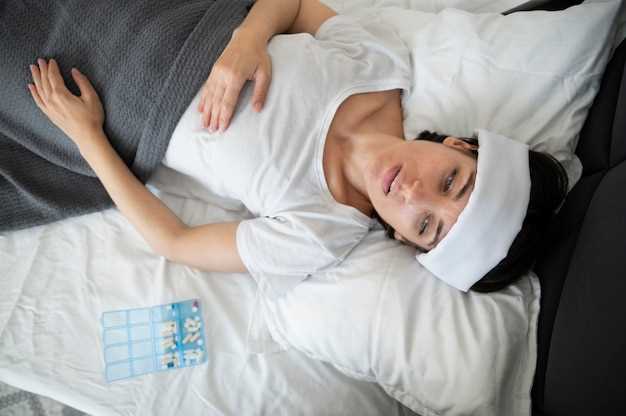
Are you tired of tossing and turning at night, desperately seeking a peaceful slumber? Look no further! In this article, we will explore the art of sleep hygiene and how it can revolutionize your nightly routine. By implementing a few simple yet effective strategies, you can enhance the quality of your rest and wake up feeling refreshed and energized.
Discover the secrets to unlocking a blissful night’s sleep by incorporating these scientifically-backed tips into your bedtime routine. From establishing a soothing pre-sleep ritual to creating a sleep-friendly environment, we will delve into the various aspects of sleep hygiene that can make a world of difference in your overall well-being.
Prepare to embark on a journey towards better sleep as we delve into the importance of maintaining a consistent sleep schedule. By syncing your body’s internal clock, you can optimize the quality of your sleep and experience a more restorative slumber. We will also explore the impact of caffeine, alcohol, and electronic devices on your sleep patterns, providing you with valuable insights to help you make informed choices for a better night’s rest.
Establish a Consistent Sleep Schedule

Creating a regular and predictable sleep routine is essential for maintaining optimal rest and recovery. By establishing a consistent sleep schedule, you can enhance the quality of your sleep and promote overall well-being.
Consistency is key when it comes to sleep. By going to bed and waking up at the same time every day, you can regulate your body’s internal clock, also known as the circadian rhythm. This internal clock helps to regulate various physiological processes, including sleep-wake cycles, hormone production, and metabolism.
Regularity in your sleep schedule can improve the efficiency of your sleep. When you consistently go to bed and wake up at the same time, your body becomes accustomed to this routine, making it easier to fall asleep and wake up naturally. This can help reduce the time it takes to fall asleep and minimize the likelihood of waking up during the night.
Predictability in your sleep schedule can also improve the overall quality of your sleep. When your body knows when to expect sleep, it can prepare itself for rest and recovery. This can lead to deeper and more restorative sleep, allowing you to wake up feeling refreshed and energized.
Commitment to a consistent sleep schedule may require some adjustments to your daily routine. It is important to prioritize sleep and make it a non-negotiable part of your day. Avoid staying up late or sleeping in on weekends, as this can disrupt your sleep schedule and make it harder to maintain consistency.
Remember, establishing a consistent sleep schedule is a fundamental aspect of sleep hygiene that can greatly improve your overall sleep quality and well-being. By prioritizing regularity and predictability in your sleep routine, you can optimize your rest and recovery, leading to better physical and mental health.
Create a Relaxing Bedtime Routine
Establishing a soothing evening ritual can greatly contribute to a peaceful and restful night’s sleep. By incorporating calming activities into your bedtime routine, you can create a serene atmosphere that promotes relaxation and prepares your mind and body for a rejuvenating rest. Here are some suggestions to help you create a personalized and effective bedtime routine:
1. Unwind with Gentle Activities

Engage in activities that help you unwind and release the stress of the day. This could include reading a book, listening to soft music, or practicing gentle stretching exercises. By engaging in these calming activities, you can gradually transition from the busyness of the day to a state of tranquility.
2. Create a Soothing Environment
Transform your bedroom into a peaceful sanctuary by paying attention to the ambiance. Dim the lights, use soft and comfortable bedding, and consider using essential oils or scented candles with relaxing aromas. These small adjustments can create a serene atmosphere that signals to your body and mind that it’s time to unwind and prepare for sleep.
Remember, the key to a successful bedtime routine is consistency. Try to establish a regular schedule and stick to it as much as possible. By consistently following your relaxing routine, you can train your body to associate these activities with sleep, making it easier to fall asleep and enjoy a restful night’s rest.
Optimize Your Sleep Environment
Creating an ideal sleep environment is essential for achieving restful and rejuvenating sleep. By optimizing your sleep environment, you can enhance the quality of your sleep and promote overall well-being. In this section, we will explore various strategies to create a sleep-friendly environment that promotes relaxation and supports healthy sleep patterns.
1. Lighting
Lighting plays a crucial role in regulating our sleep-wake cycle. To optimize your sleep environment, ensure that your bedroom is dark and free from excessive artificial light. Consider using blackout curtains or blinds to block out external light sources, such as streetlights or early morning sunlight. Additionally, avoid using electronic devices with bright screens before bedtime, as the blue light emitted by these devices can disrupt your natural sleep patterns.
2. Temperature
The temperature of your sleep environment can significantly impact the quality of your sleep. It is important to create a cool and comfortable atmosphere in your bedroom. Keep the room well-ventilated and consider using a fan or air conditioner to maintain a moderate temperature. Experiment with different bedding materials and adjust the number of blankets or layers to find the optimal level of warmth for your sleep.
3. Noise
Noise can disrupt your sleep and prevent you from entering deep, restorative sleep stages. To optimize your sleep environment, minimize external noise as much as possible. Consider using earplugs or a white noise machine to mask disruptive sounds. If you live in a noisy area, you may also want to consider using a soundproofing solution, such as soundproof curtains or acoustic panels, to create a quieter sleep environment.
- Ensure your bedroom is dark and free from excessive artificial light.
- Create a cool and comfortable atmosphere in your bedroom.
- Minimize external noise as much as possible.
By implementing these strategies and customizing your sleep environment to suit your individual preferences, you can optimize your surroundings for a restful and rejuvenating sleep experience. Remember, a conducive sleep environment is a key component of healthy sleep hygiene and can greatly contribute to your overall well-being.
Limit Exposure to Electronic Devices Before Bed
Reducing the amount of time spent using electronic devices before going to bed can have a significant impact on the quality of your sleep and overall well-being. It is important to establish a routine that allows for relaxation and disconnection from the digital world, promoting a restful and rejuvenating sleep.
Avoiding the use of electronic devices such as smartphones, tablets, and laptops before bedtime can help regulate your body’s natural sleep-wake cycle. The blue light emitted by these devices can suppress the production of melatonin, a hormone that regulates sleep, making it harder to fall asleep and stay asleep throughout the night.
Instead of scrolling through social media or watching videos, consider engaging in activities that promote relaxation and prepare your mind and body for sleep. Reading a book, practicing meditation or deep breathing exercises, or listening to calming music can help shift your focus away from screens and promote a sense of calmness.
Creating a technology-free zone in your bedroom can also be beneficial. Keep electronic devices out of reach or turn them off completely to minimize the temptation to use them before bed. This can help create a peaceful environment that is conducive to sleep and relaxation.
Establishing a consistent bedtime routine that includes a period of electronic device-free time can signal to your body that it is time to wind down and prepare for sleep. Engaging in relaxing activities, such as taking a warm bath or practicing gentle stretching exercises, can help promote a sense of relaxation and signal to your body that it is time to sleep.
By limiting exposure to electronic devices before bed, you can improve the quality of your sleep and enhance your overall well-being. Prioritizing relaxation and disconnection from screens can help promote a restful night’s sleep, allowing you to wake up feeling refreshed and rejuvenated.
Avoid Stimulants and Heavy Meals Before Sleep
Creating a conducive environment for quality sleep involves more than just having a comfortable bed and a quiet room. It also requires paying attention to our pre-sleep routine and avoiding certain habits that can interfere with our ability to fall asleep and stay asleep throughout the night.
One important aspect of maintaining good sleep hygiene is avoiding stimulants and heavy meals before bedtime. Stimulants, such as caffeine and nicotine, can disrupt our natural sleep-wake cycle and make it difficult for us to relax and fall asleep. It is advisable to limit or avoid consuming these substances, especially in the hours leading up to bedtime.
Additionally, consuming heavy meals close to bedtime can also negatively impact our sleep. Digesting a large meal requires a significant amount of energy from our bodies, which can make it harder for us to feel relaxed and ready for sleep. It is recommended to have lighter meals in the evening and allow ample time for digestion before going to bed.
Instead of relying on stimulants like coffee or energy drinks to stay awake during the day, it is better to find healthier alternatives to boost our energy levels. Engaging in regular physical activity, staying hydrated, and getting enough sunlight can help us feel more awake and alert without interfering with our sleep at night.
By avoiding stimulants and heavy meals before sleep, we can create a more favorable environment for restful and rejuvenating sleep. Developing a consistent pre-sleep routine that promotes relaxation and avoiding habits that can disrupt our sleep-wake cycle are essential steps towards achieving better sleep quality and overall well-being.
Incorporate Regular Exercise into Your Daily Routine
Integrating consistent physical activity into your everyday schedule can have a profound impact on your overall well-being. By making exercise a regular part of your daily routine, you can enhance various aspects of your health and improve your quality of life.
Engaging in regular physical activity offers numerous benefits for both your physical and mental health. It can help you maintain a healthy weight, strengthen your muscles and bones, and improve your cardiovascular fitness. Additionally, exercise has been shown to reduce the risk of chronic diseases such as heart disease, diabetes, and certain types of cancer.
Regular exercise also plays a crucial role in promoting mental well-being. It can help alleviate symptoms of stress, anxiety, and depression, while boosting your mood and overall cognitive function. Incorporating physical activity into your daily routine can provide a natural and effective way to manage and improve your mental health.
When it comes to incorporating exercise into your daily routine, it’s important to find activities that you enjoy and that fit into your schedule. This could include activities such as walking, jogging, cycling, swimming, or participating in group fitness classes. Aim for at least 150 minutes of moderate-intensity aerobic activity or 75 minutes of vigorous-intensity aerobic activity per week, along with muscle-strengthening activities on two or more days.
Remember to start slowly and gradually increase the intensity and duration of your workouts to avoid injury. It’s also essential to listen to your body and give yourself rest days to allow for proper recovery. By making regular exercise a priority in your daily routine, you can reap the numerous physical and mental health benefits it offers.



